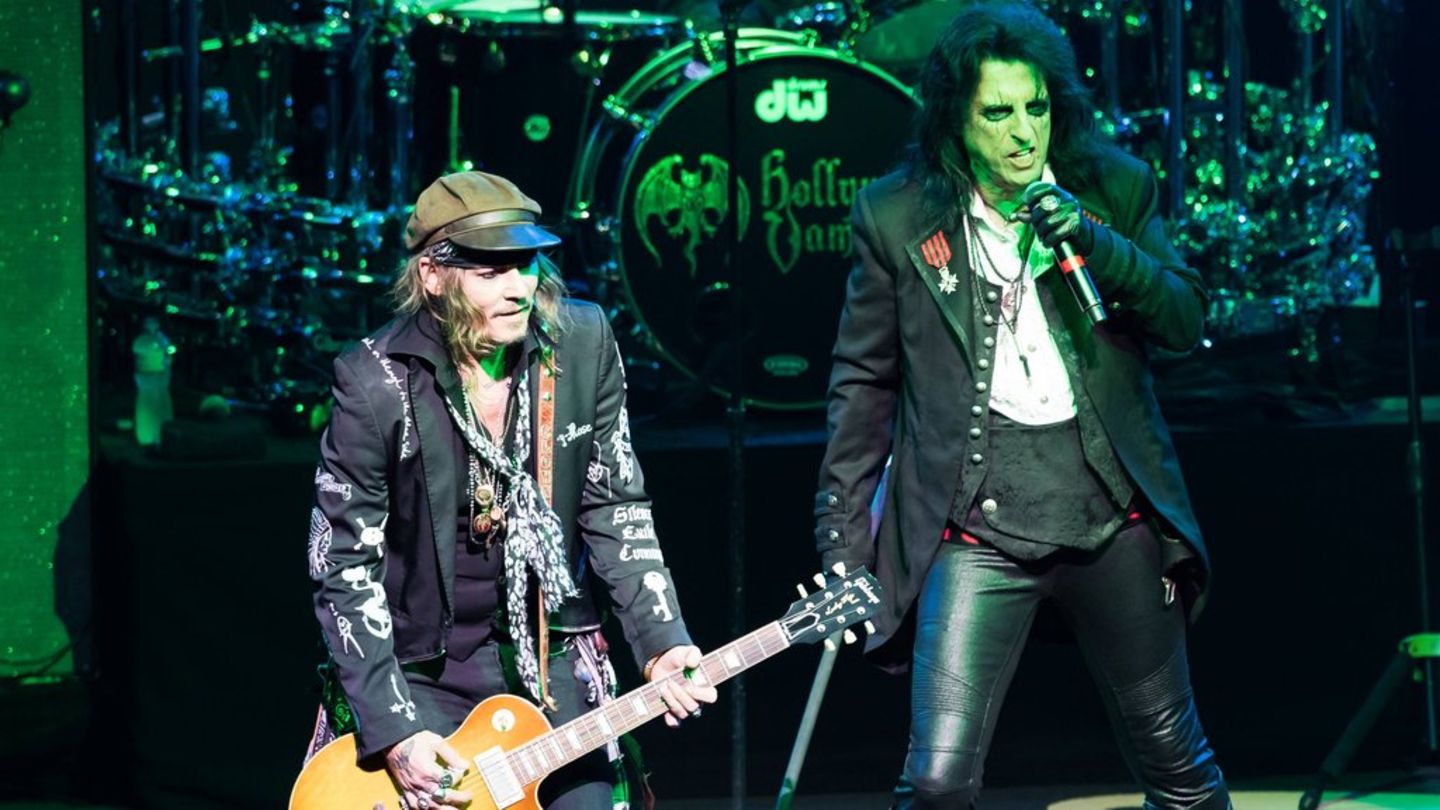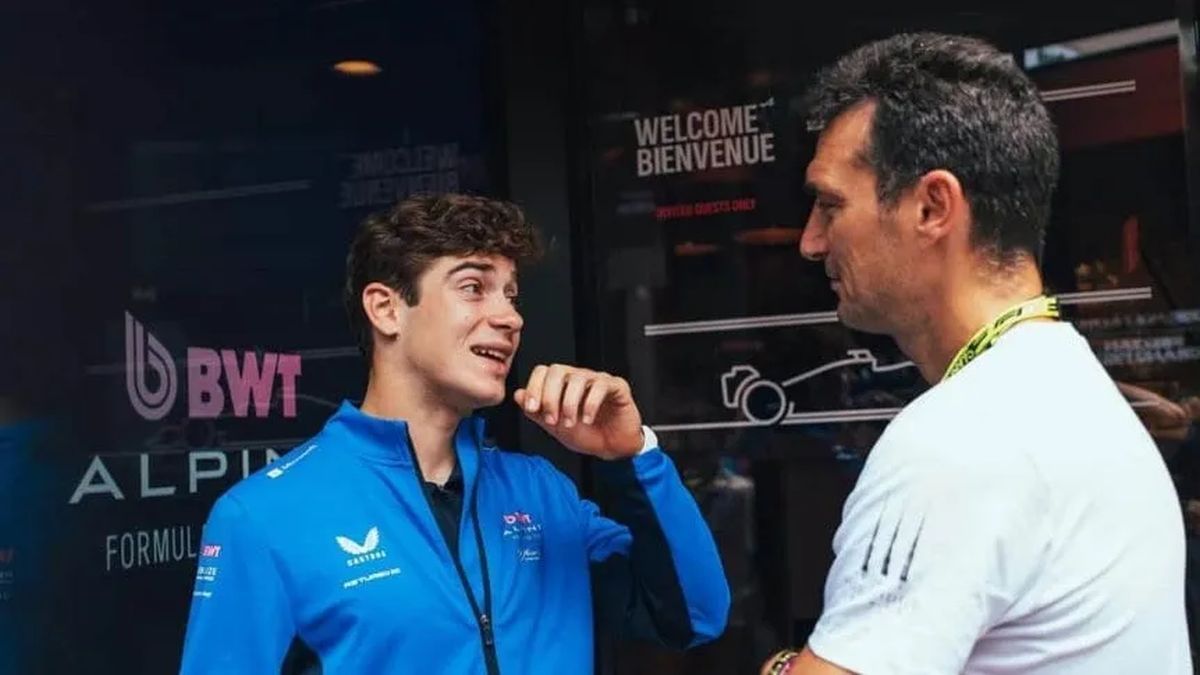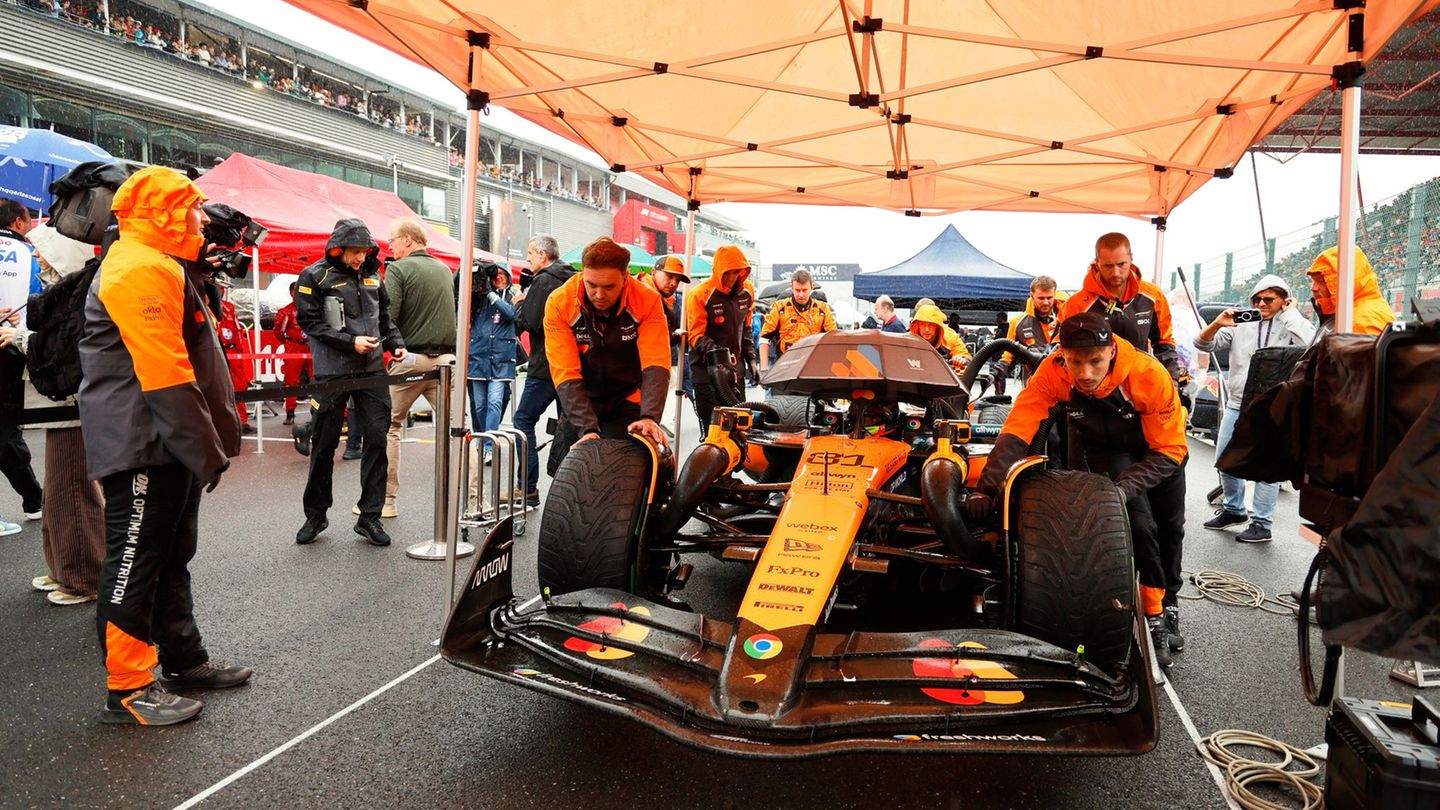A real heart project: For her documentary “A Women’s Story”, Natalia Wörner interviewed prominent women on the subject of equal rights.
Just in time for International Women’s Day, actress Natalia Wörner (54) embarks on a documentary journey with “A Women’s Story” (from March 8 on RTL+, production UFA Documentary, We are Era in co-production with Target Films), on which she sees strong, self-confident women meets those fighting for their equality, rights and freedoms. For Wörner a real heart project, she has been passionately committed to women’s rights for many years.
In 2020, she founded the #Sicherheim initiative, a campaign against domestic violence against women, and she currently supports L’Oréal Paris’ “StandUp” initiative. “My basic thesis is that we can only talk about equality when the issue of violence against women has a zero tolerance position in our society,” the 54-year-old clarifies in an interview. She dedicates International Women’s Day 2022 to all women and girls in Ukraine and Russia. “Women who fear for their husbands, their sons and their brothers.”
You have been fighting passionately for women’s rights and equality for many years. Where does this commitment come from, what is your original motivation?
Natalia Wörner: The primary motivation is certainly my biography. I grew up in a 4-generation household with my sister, mother, grandmother and great-grandmother and therefore exclusively among women. That left a deep mark on me and gave me a non-ideological emancipation for my life. Among other things, it had the advantage that I grew up without gender hierarchies. The authority lay with the women, male authority first had to go through an internal examination committee – that is still the case in a certain way today. (laughs)
Where do we currently stand in our society in terms of equal opportunities and equal rights?
Wörner: I think we have to sharpen our perception and let the facts speak for themselves based on a perceived self-image. Germany occupies just tenth place in the European Union’s equality ranking. Nevertheless, according to a survey by the Federal Ministry for Family Affairs in 2020, a third of Germans believe that enough is being done for equality between women and men. In recent years, women in Germany have caught up in the areas of education, employment and income. When it comes to education, women have already overtaken men. The differences in payment are also shrinking. But women still lag behind when it comes to old-age provision and top jobs. Now is the time to create political structures that tackle this form of injustice – it’s about time.
According to the study, there are large differences in earnings. According to the WSI, the average hourly wage for women was 18.62 euros gross per hour, 18.3 percent or 4.16 euros below that of men. One reason for this is that women are four times as likely to work part-time as men, often to better balance work and family. This limits career opportunities. The wage gap has narrowed slowly but steadily in recent years. According to the WSI, the still large gap in the subject of old-age provision is therefore more serious. “If you take statutory pension, company and private old-age provision together, women receive an average 49 percent lower old-age income than men,” reported the WSI.
“Women are getting smaller in important areas. But so far, progress in equality has mostly been very slow,” said WSI researcher Yvonne Lott, summing up the development. It is still unclear whether the pandemic will have a negative impact on the long-term positive trend in the area of equality. Various studies have shown that in times of lockdowns, daycare closures, quarantine and homeschooling, women were much more likely to have reduced their gainful employment than men.
Equal rights, rights and freedoms for women: You also deal with these topics in your documentary film “A Women’s Story”. A real heart project?
Wörner: It is very important to me to give the younger generation the baton or the torch, to give impetus, to encourage them to conquer the terrain that is theirs. But I also want to show what we have achieved and what still needs to be done, and that is best done in a choir of strong voices.
You talk to prominent colleagues like Iris Berben or Helen Mirren about female empowerment. What exactly is female empowerment for you?
Wörner: To be able to live as one wishes for oneself decides and acts in all areas of life. Equal rights, without gender hierarchies and without discrimination based on gender, and all this as a matter of course, so that at the end of the day it is not gender that is in the foreground, but people with all their talents, wishes, hopes and weaknesses.
How do you live Female Empowerment yourself?
Wörner: I live it in my everyday life with my history, my socialization: As the mother of a teenage son, with a job that challenges me again and again and in a relationship that defines eye level as a basic principle. Anyone who talks about equality is not only talking about the gaps, pensions, poverty in old age, the economy and Corona, but also about everything that has traditionally gone wrong between people. We can all start with ourselves and then point to politics.
Which women have you particularly touched in the course of your documentary?
Wörner: The openness and trust that all the women showed me was a very moving experience for me personally. In every single conversation there was that one moment of merging between asking questions, answering and listening and then going that extra step that makes for a deep conversation. Andie MacDowell impressed me a lot because she is so relentlessly open, clear and uncompromising. Apart from that, she has an incredibly strong charisma. She is a gentle warrior. And also the unique Iris Berben, who has been dealing with all these topics so intelligently and sensitively for many years and who has dedicated herself to the topic of equality so differentiated and wholeheartedly. She gave me many presents during our conversation – I have all my admiration for her.
You mention violence against women as one of the strongest topics in the context of female empowerment. Why is this still a taboo subject in many places?
Wörner: My basic thesis is that we can only talk about equality when the issue of violence against women has been given a zero tolerance position in our society. And I’m talking about emotional, psychological, digital and of course physical violence. Every day in this country a man tries to kill a woman. Every third day in Germany a woman dies at the hands of a man who is probably her partner or who used to be her. The most dangerous place for a woman in Germany is still not the street or the club toilet, but her home.
Have you ever dealt with the issue of violence against women in your private life?
Wörner: Through the #Sicherheim initiative, which I co-founded, I met a lot of women who confided in me about their experiences. That also went on very private levels, yes.
Among other things, you support the “StandUp” initiative of L’Oréal Paris, what exactly is behind it?
Wörner: What I find so great about the initiative is that it is aimed at women who have experienced transgressions in public space with such clear, everyday approaches. The tools presented are clear, concise and helpful. in public by L’Oréal Paris and the non-profit organization Right To Be is a great opportunity to practice something theoretically first and then to implement it in a real situation with a guide to action. It is important that the intervening person does not expose themselves to any danger. The principle is simple and applicable everywhere.
The second aspect of the “StandUp” method is that whoever finds himself in the situation and observes a crossing of boundaries can meaningfully contribute in a de-escalating way to support women who are affected by a crossing of boundaries . “StandUp” strives to illuminate and protect public space. I think the reluctance to intervene in a situation where you are not involved is a natural reflex. But standing by women who are overwhelmed at a moment is, if you let it get to your heart, also a desire to walk hand in hand. I think more moral courage suits all of us in any form.
What would you wish for, where women are in ten years. And what does it take?
Wörner: In ten years, I would like the topic of violence against women to be given a position that no longer allows for evasive maneuvers. That we live in a societal climate in which equality for women has become a common concern of women and men and of all gender identities and that the will to achieve equality can be clearly defined. What does it take? insight, heart and mind!
International Women’s Day is celebrated every year on March 8th, and has been for over 100 years. Does this day still need today?
Wörner: Yes, it is very clearly needed right now, because we are on a threshold. Everything has been said, everything has been felt. We’ve seen the changes that came with #MeToo, Black Lives Matter and the visibility of diversity. We are witnessing a war in Europe right now that stems from the primal DNA of toxic masculinity. We need more women in leadership positions, more women in politics and at the negotiating table. If that were a reality, this war wouldn’t happen, I’m convinced of that. I personally dedicate this International Women’s Day 2022 to all women and girls in Ukraine and Russia. Women who fear for their husbands, their sons and their brothers. Men dying a senseless death in an autocrat’s quest for power and we watch – helpless and stunned.
Source: Stern
I am a 24-year-old writer and journalist who has been working in the news industry for the past two years. I write primarily about market news, so if you’re looking for insights into what’s going on in the stock market or economic indicators, you’ve come to the right place. I also dabble in writing articles on lifestyle trends and pop culture news.




